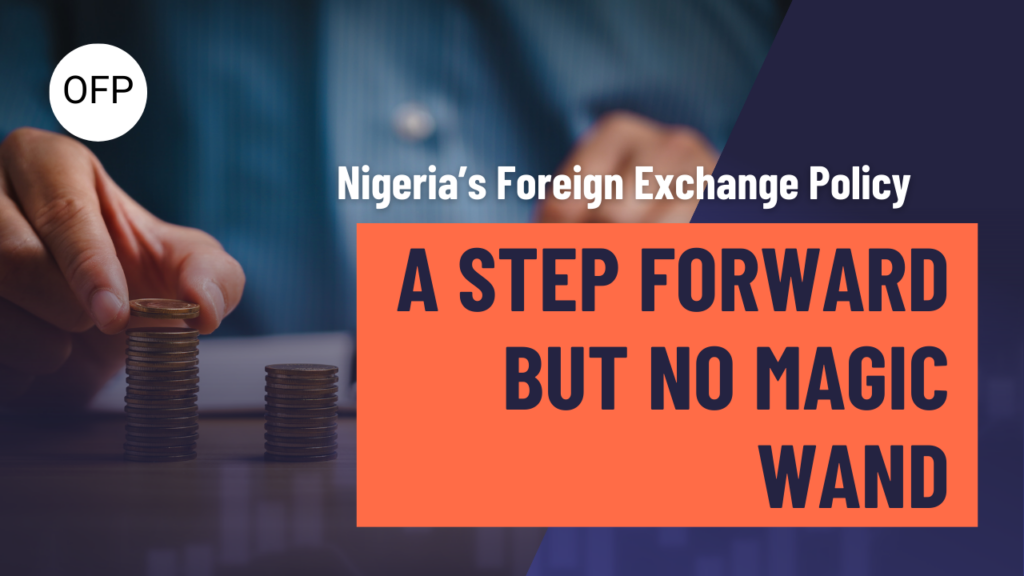Nigeria’s foreign exchange market has been buzzing lately, thanks to some significant changes announced by the Central Bank of Nigeria (CBN). These changes, which have sparked a wave of cautious optimism, shift the responsibility of determining currency rates from the central bank to market forces. This move aligns with President Bola Ahmed Tinubu’s administration’s push for a market-driven valuation of the naira.
Table of Contents
A Troubled Past: The Ghost of Exchange Rates Past
Let’s rewind a bit. For years, Nigeria’s foreign exchange system was a tangled web of multiple exchange rates. This setup wasn’t just confusing; it was a nightmare for the economy. The International Monetary Fund (IMF) repeatedly nudged Nigeria to clean up its act, but the gap between official and unofficial rates remained a glaring issue. This disparity didn’t just scare away investors—it starved the country of foreign exchange, creating a scarcity that crippled supply and sent the economy into a tailspin.
But here’s the thing: This isn’t Nigeria’s first rodeo. The country has tried to liberalize its foreign exchange market several times—first in 1986, then in 1995, 1999, and 2016. Unfortunately, these efforts didn’t pan out as hoped, each time stumbling over various hurdles.
The Triple Threat: Transparency, Shortages, and Volatility
Nigeria’s foreign exchange market has a trio of persistent problems: a lack of transparency, chronic shortages, and wild volatility. Let’s break it down.
- Transparency Issues: The market has often been a murky place, with unclear pricing and lots of room for exploitation.
- Foreign Exchange Shortages: Nigeria’s economy leans heavily on oil, which brings in about 90% of the country’s foreign exchange earnings. So, when oil prices take a nosedive, the foreign exchange market feels the heat, and the naira becomes more volatile than a soap opera plotline.
- Volatility: This isn’t just about oil. Non-oil foreign exchange sources, like remittances from Nigerians abroad, tourism, and exports of non-oil products, often flow through the black market. This under-the-table action only makes things more chaotic.
Learning from the Neighbors: What Africa Taught Us
Nigeria isn’t the only country facing these issues. Let’s take a quick tour of the neighborhood. Egypt floated its currency in 2016, which led to a sharp 50% drop in the value of the Egyptian pound. South Africa, with its free-float policy, still grapples with the ups and downs of the rand.
These examples highlight a crucial point: Market liberalization isn’t a cure-all. It’s like trying to control a wild horse—it takes more than just removing the reins. Nigeria’s exchange rate stability will depend on more than just this policy shift. It’s going to take a delicate balance of monetary and fiscal policies, political stability, security, and—perhaps most importantly—investor confidence.
The Road Ahead: Is the Policy Enough?
As an economist, I’ve seen Nigerians react to this new policy with a mix of hope and skepticism. It’s too soon to declare victory, but we can already see some potential benefits on the horizon.
The most immediate impact could be on Nigeria’s parallel foreign exchange market, which has been bloated and ripe for exploitation. By letting market forces dictate exchange rates, we might finally see the official and parallel rates align. This could reduce the number of currency dealers lurking in airports, hotels, and street corners. However, let’s be realistic: Some of the black market’s shadier dealings—like money laundering and other illicit financial activities—aren’t going to disappear overnight.
Tackling the Root of the Problem: Rent-Seeking Behavior
One of the most damaging byproducts of Nigeria’s dual-rate system has been rent-seeking. Picture this: Certain individuals exploit the gap between the official and parallel rates, buying foreign currency at the official rate and flipping it for a tidy profit on the black market. This isn’t just sneaky; it’s a key feature of Nigeria’s crony capitalism, where a few well-connected individuals benefit at the expense of the broader economy.
But here’s the silver lining. The new policy could force these speculators to either adapt or find a new line of work—hopefully something more productive than gaming the system.
Conclusion: A Promising Start, But the Journey Continues
So, what’s the bottom line? Nigeria’s new foreign exchange policy is a step in the right direction, but it’s not a magic bullet. For it to succeed, the Central Bank of Nigeria needs to stay the course, something that has been a challenge in the past. And while the policy could help stabilize the naira and boost investor confidence, it will only work if it’s part of a broader, sustained effort to reform Nigeria’s economy.
In the end, this policy could pave the way for a more stable and prosperous Nigeria. But like any journey worth taking, it’s going to require patience, perseverance, and a bit of luck.
Ready to explore new markets? Join OFP and expand your trading horizons.

